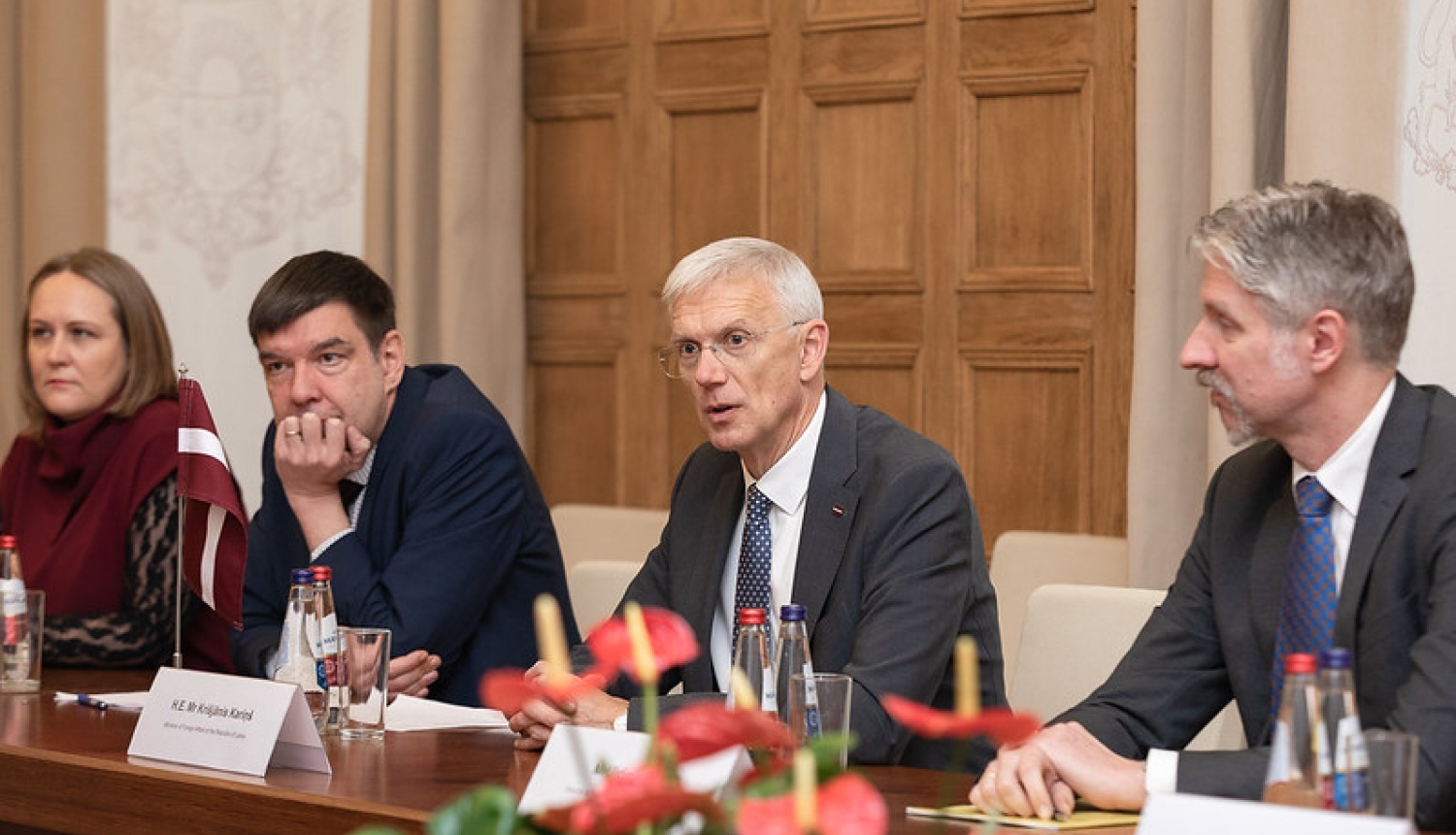On 31 October 2023, the Minister of Foreign Affairs, Krišjānis Kariņš, met with a delegation from the Standing Committee on Foreign Affairs and Defence of the Storting (Norwegian Parliament), which had arrived in Latvia on a working visit.
The meeting with the members of the Norwegian Parliament addressed bilateral relations, regional cooperation, and matters high on the international agenda. The Foreign Minister Krišjānis Kariņš affirmed that the two countries had good cooperation and common interests in the strengthening of security in the Baltic and Nordic regions, which is particularly important in the present-day geopolitical situation.
Special attention was devoted to Ukraine, support to the country in its fight against Russian aggression and to Ukraine’s integration into the European Union. Krišjānis Kariņš thanked Norway for its assistance and underlined the need to continue supporting Ukraine as long as it takes. Krišjānis Kariņš emphasized the importance for the region to have a coordinated approach. While discussing current tensions in the Middle East, the Foreign Minister noted that the two-state solution was the only option for resolving this conflict.
In response to questions from the MPs, the Foreign Minister outlined Latvia’s historical experience during the occupation and its consequences, as well as informing the visitors about an increase in Latvia’s defence budget and the introduction of a mandatory military service aimed at strengthening the defence capabilities of Latvia. The transition to renewable energy resources was also discussed during the conversation.
The Norwegian politicians commended the successful coordination between the Baltic States and Nordic countries in the Council of Europe.
Background information
Norway is one of the participants of the Nordic-Baltic Eight (NB8) format. Work in the NB8 format is coordinated in a rotational order. Latvia is coordinating the NB8 cooperation in 2023. During its chairmanship, Latvia will promote cooperation in three directions: strengthening of a rules-based international order; strengthening of military security and deterrence capabilities; and strengthening of resilience.





